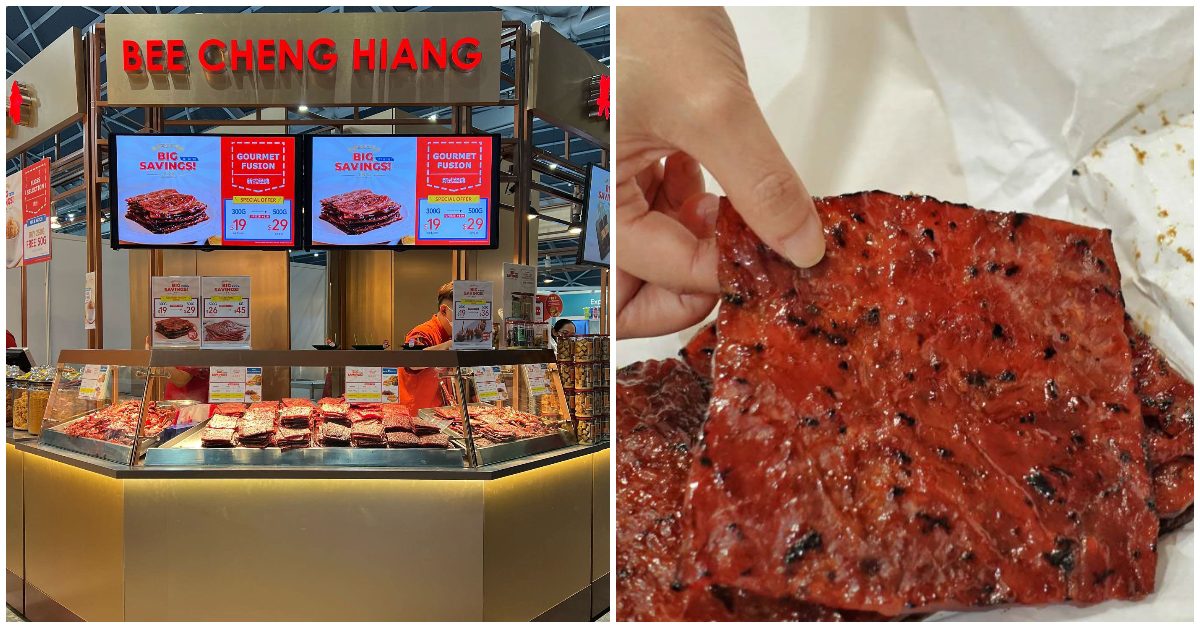The Consumer Council in Hong Kong recently released its research on its tests of processed meat snacks from the shelves and one snack stood out particularly – bak kwa from Singapore brand, Bee Cheng Hiang.
Bak kwa is a type of jerky that is salty-sweet and is a popular snack in Singapore, especially during Chinese New Year. And it doesn’t come cheap. Prices can start from S$24 for 250g of bak kwa.
The study in Hong Kong found potentially carcinogenic polycyclic aromatic hydrocarbon (PAHs) in 13 samples of different meat snacks, with the highest levels detected in Bee Cheng Hiang’s sliced beef bak kwa.
But don’t panic just yet! The Singapore Food Agency (SFA) did some assessments of its own and said that there is no health risk when consumed in moderation and “not in large quantities, on a regular basis”.
According to the SFA, PAHs are formed in the cooking process – when meat is grilled or charred over an open flame and also when PAH particles which are found in smoke settle on the meat surface.
However, at 18.2 micrograms per kilogram, the level of PAHs in the Bee Cheng Hiang bak kwa exceeds the suggested European Union (EU) limit of 12 micrograms, according to the Hong Kong Consumer Council.
It is understood that Bee Cheng Hiang are aware of this report.
A spokesman for Bee Cheng Hiang told The Straits Times that the company was aware of the report but assured that the bak kwa produced at their outlets are in compliance with SFA’s food safety requirements and safe for consumption.
They added, “For consumers with a balanced and varied diet, this is no cause for concern.”
But in the words of the Spice Girls, too much of something is bad. Bak kwa, a processed meat product, is already generally high in fat and sugar content – throw in some carcinogens now and this snack is one for the bad books.
Other stories to check out:





Reader Interactions